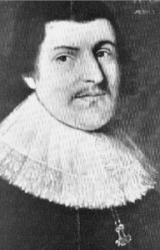Planning worship?
Check out our sister site, ZeteoSearch.org,
for 20+ additional resources related to your search.
- |
User Links
Search Results
Come In, O Come!
Author: Rev. Hanley C. G. Moule Appears in 17 hymnals First Line: Come in, O come! The door stands open now Used With Tune: [Come in, O come! The door stands open now]
Come In, O Come!
Come In, My Saviour!
Author: Rev. Handley C. G. Moule Hymnal: One Hundred Gospel Hymns #55 (1902) First Line: Come in, O come, the door stands open now Languages: English Tune Title: [Come in, O come, the door stands open now]
Come In, My Saviour!
Come In, O Come!
Author: C. G. Moule Hymnal: Songs Tried and Proved #73 (1896) First Line: Come in, O come! the door stands open now Languages: English Tune Title: [Come in, O come! the door stands open now]
Come In, O Come!
Come In, O Come!
Author: Rev. Hanley C. G. Moule Hymnal: Missionary Hymnal #93 (1915) First Line: Come in, O come! The door stands open now Languages: English Tune Title: [Come in, O come! The door stands open now]
Come In, O Come!
Henry Thomas Smart

1813 - 1879 Person Name: H. Smart Composer of "GENOA" in Common Praise Henry Smart (b. Marylebone, London, England, 1813; d. Hampstead, London, 1879), a capable composer of church music who wrote some very fine hymn tunes (REGENT SQUARE, 354, is the best-known).
Smart gave up a career in the legal profession for one in music. Although largely self taught, he became proficient in organ playing and composition, and he was a music teacher and critic. Organist in a number of London churches, including St. Luke's, Old Street (1844-1864), and St. Pancras (1864-1869), Smart was famous for his extemporizations and for his accompaniment of congregational singing. He became completely blind at the age of fifty-two, but his remarkable memory enabled him to continue playing the organ. Fascinated by organs as a youth, Smart designed organs for important places such as St. Andrew Hall in Glasgow and the Town Hall in Leeds. He composed an opera, oratorios, part-songs, some instrumental music, and many hymn tunes, as well as a large number of works for organ and choir. He edited the Choralebook (1858), the English Presbyterian Psalms and Hymns for Divine Worship (1867), and the Scottish Presbyterian Hymnal (1875). Some of his hymn tunes were first published in Hymns Ancient and Modern (1861).
Bert Polman
Henry Thomas Smart
Frederick C. Atkinson
1841 - 1896 Composer of "MORECAMBE" in The Church Hymnal Born: August 21, 1841, Norwich, Norfolk, England. Died: November 30, 1896, East Dereham, Norfolk, England. As a boy Atkinson was a chorister and assistant organist at Norwich Cathedral. In 1867 he graduated with a Bachelor of Music degree from Cambridge and then served as organist and choirmaster in St. Luke's Church, Manningham, Bradford. He also held that position at Norwich Cathedral and at St. Mary's Parish Church in Lewisham. Atkinson wrote hymn tunes, anthems, and complete Anglican services, as well as songs and piano pieces.
Psalter Hymnal Handbook, 1988
Frederick C. Atkinson
Henry Lawes

1596 - 1662 Person Name: H. Lawes, 1596-1662 Composer of "BATTLE" in The Methodist Hymn-Book with Tunes Born: January 5, 1596, Dinton, Wiltshire, England.
Died: October 21, 1662, London, England.
Buried: In the cloisters of Westminster Abbey, London, England.
Lawes, tutor to the daughters of the Earl of Bridgewater, is best known as a composer. He became a Gentleman of the Chapel Royal in 1626, and a member of the "King’s Musick" in 1631. He wrote over 400 vocal pieces, as well as anthems and instrumental compositions. His works include:
Choice Psalmes Put into Musick for Three Voices, 1648
Ayres and Dialogues (London: 1653)
Sources:
Frost, p. 680
Hughes, pp. 467-68
Nutter, p. 460
Stulken, p. 292
--www.hymntime.com/tch
Henry Lawes


 My Starred Hymns
My Starred Hymns


